Hyperstimulation anxiety happens when an individual struggles with hyperstimulation of their senses. With overstimulated senses, individuals struggle with anxiety related to that stimulation.
Sometimes referred to as sensory overload, the heightened anxiety that comes from these feelings can cause chronic stress and disrupt daily life. Thankfully, you can learn how to recover from hyperstimulation anxiety with the right combination of professional treatment, medication, and lifestyle changes.
How to Recover from Hyperstimulation Anxiety
With the right holistic drug rehab, you can learn anxiety management strategies combined with medication management to help you treat hyperstimulation anxiety.
Professional Support
Professional support is often the starting point for those looking to recover from hyperstimulation anxiety.
Therapy
In many cases, cognitive behavioral therapy can help individuals learn how to reduce the behaviors or thoughts that lead to their anxiety.
Other therapies for hyperstimulation anxiety include exposure response prevention therapy, which can help individuals create effective coping tools in response to their fears and anxieties.
Therapy can take the form of individual therapy where you can learn coping strategies for yourself as well as group therapy where you can share with others and learn from them.
Medications
With the right case manager, medication can be an effective part of treatment, with higher efficacy if used in tandem with therapy.
The medications prescribed for hyperstimulation anxiety won’t cure the condition, but anti-anxiety medications or antidepressants can help with some of the symptoms, making it easier to focus on the lifestyle changes and coping mechanisms that are essential to a solid foundation for recovery.
Relaxation Techniques
While you are receiving professional support, you’ll learn relaxation techniques that can control your anxiety.
Mindfulness
Mindfulness and meditation are mental health tools that anyone can use to help reduce anxiety, stress, and depression. At the right professional treatment center, you can be guided through mindfulness practices and guided meditation to train yourself to focus on positive emotions and reach a sense of calm even when things are overwhelming or overstimulating.
These tools can be applied at any time, making it easy to manage overstimulation of senses no matter where they manifest. Breathing exercises, including meditation, can be a helpful way to calm your heart rate when you are feeling anxious. While there are things outside of your control, sometimes your overstimulated senses, it’s important to remember the things that you can control, like your breath.
Exercise
Regular exercise, particularly yoga, is a highly effective tool for moderating emotions and controlling the anxiety from hyperstimulation.
This works in much the same way as mindfulness and meditation; it forces you to focus on your breathing and in the present moment.
Too often, anxiety represents concern and worry about the future, while depression represents rumination over the past. With yoga and mindfulness, you have to force yourself to focus on the present and stay grounded in your current activities, which reminds you of what really matters, what is going on in your environment, and what things are within your control, like your breathing.
Lifestyle Changes
Finally, you’ll learn lifestyle changes that can help you practice the things you’ve learned in your therapy sessions or remain mindful and relaxed.
Nutrition
One part of your lifestyle changes include taking care of your body by giving yourself the right nutrients and staying hydrated. It is not uncommon for people who experience chronic stress or anxiety to be dehydrated. Similarly, the nervous system tends to crave fats and sugars to help slow the processes down when there is heightened anxiety which means you are more likely to eat unhealthy food if you are stressed.
Getting professional help can expose you to the right type of nutrition for your condition.
Stress
Learning to manage stress is another key aspect of your lifestyle changes, and that includes things like getting enough sleep, exercising regularly, limiting technology use, avoiding alcohol or caffeine, especially before bed, and finding stress management techniques that really work for you.
Getting Help from 90210 Recovery
At 90210 Recovery, we know that every client who comes through our doors is different. That’s why we have unique staff members that include dedicated case managers, psychiatrists, and doctors to provide evidence-based, holistic care in an environment that allows you to heal.
As part of learning how to recover from hyperstimulation anxiety is finding time to focus on the present, to ground yourself with things you can control and that’s where our yoga and exercise programs come into play as well as our weekly massage therapist sessions and our extracurricular creative activities that include writing, music groups, and more.
Our goal is to make each client feel safe and connected full of hope in a world that can be chaotic. We will help you rediscover yourself and appreciate positive connections that you have so that you are able to maintain peace of mind while you learn how to recover from hyperstimulation anxiety.
Reach out to our team today to review your insurance and start your evaluation process.


